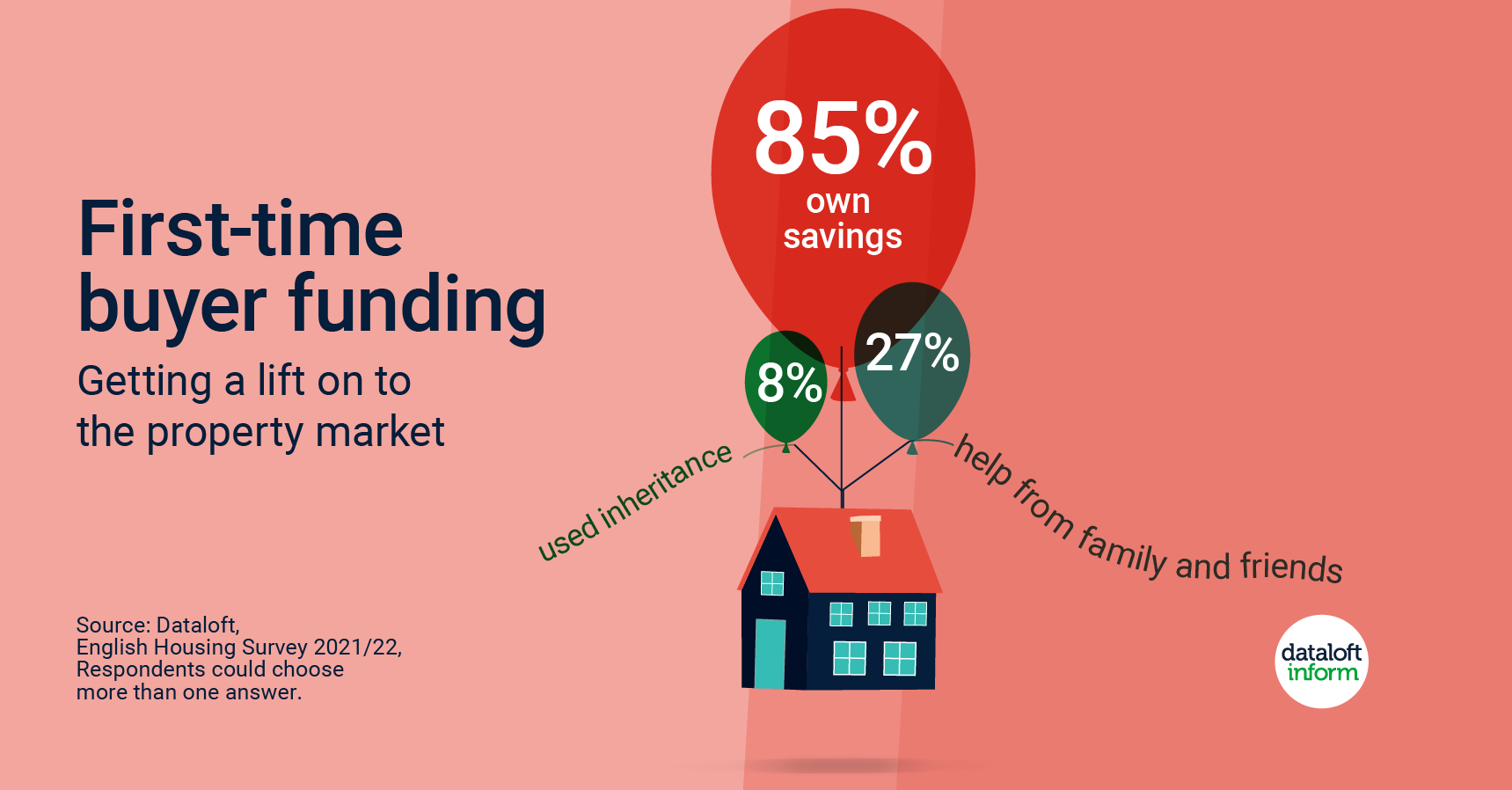
Becoming a first-time homeowner is a significant milestone for many individuals. However, the journey to property ownership often involves a complex financial puzzle, primarily centered around the deposit. The average deposit paid by a first-time buyer in the UK stands at £43,693, according to data from Dataloft and the English Housing Survey 2021/22. In this article, we'll explore the key findings related to first-time buyer deposits and trends in the housing market.
The Deposit Dilemma
The £43,693 figure may seem daunting, especially for those entering the property market for the first time. Saving up for such a substantial deposit requires careful financial planning and discipline. It is noteworthy that this is merely the average, meaning that many first-time buyers pay more, while others contribute less.
Income and Deposits
The data reveals an interesting correlation between income and deposit size. Nearly two-thirds (63%) of first-time buyers belonged to the top 40% income bracket. This observation underscores the influence of income levels on the ability to save for a substantial deposit. Higher income individuals tend to have a more substantial financial cushion, making it easier for them to meet the deposit requirement.
Deposit Size Variation
Over two-thirds (68%) of first-time buyers paid less than a 20% deposit when purchasing their first home. A deposit below 20% often means a higher loan-to-value ratio, potentially resulting in higher monthly mortgage payments. This could be a reason for some first-time buyers opting for smaller deposits to secure a property sooner.
On the other end of the spectrum, a fortunate 5% of first-time buyers were mortgage-free. This group either had access to substantial savings, financial support from family, or other means that allowed them to bypass the need for a mortgage. Being mortgage-free provides a significant advantage in terms of long-term financial security and lower housing costs.
Funding the First Home
The majority of first-time buyers (85%) reported that they funded their first home purchase with their own savings. This signifies the importance of disciplined saving and financial planning. A significant portion of these buyers relied on their own financial means to achieve their homeownership dream.
Family and Friends' Support
While most first-time buyers used their savings, 27% received help from family and friends. This support often comes in the form of a gifted deposit or a family member acting as a guarantor, enabling access to better mortgage terms. This assistance can be a crucial step in helping individuals get onto the property ladder.
Inheritance as a Boost
For 8% of first-time buyers, inheritance played a role in making their home purchase possible. An inheritance windfall can significantly expedite the process of buying a first home, providing a financial leg-up for those fortunate enough to receive it.
First-Time Buyers' Impact on the Market
Despite the high costs and challenges associated with buying a first home, first-time buyers accounted for 53% of all home moves in the third quarter of the year. This is the highest proportion in over a year, signalling their continued influence on the housing market. With increasing stability and the likelihood of mortgage rates coming down, it is possible that more first-time buyers will enter the market in the coming months.
The path to homeownership for first-time buyers in the UK is shaped by a range of factors, with the deposit being a significant hurdle to overcome. Income levels, savings, family support, and even inheritance all play a role in helping individuals achieve their dream of owning their first home. Despite the financial challenges, first-time buyers remain a driving force in the housing market, and with favourable conditions, their presence is likely to continue growing in the near future.









